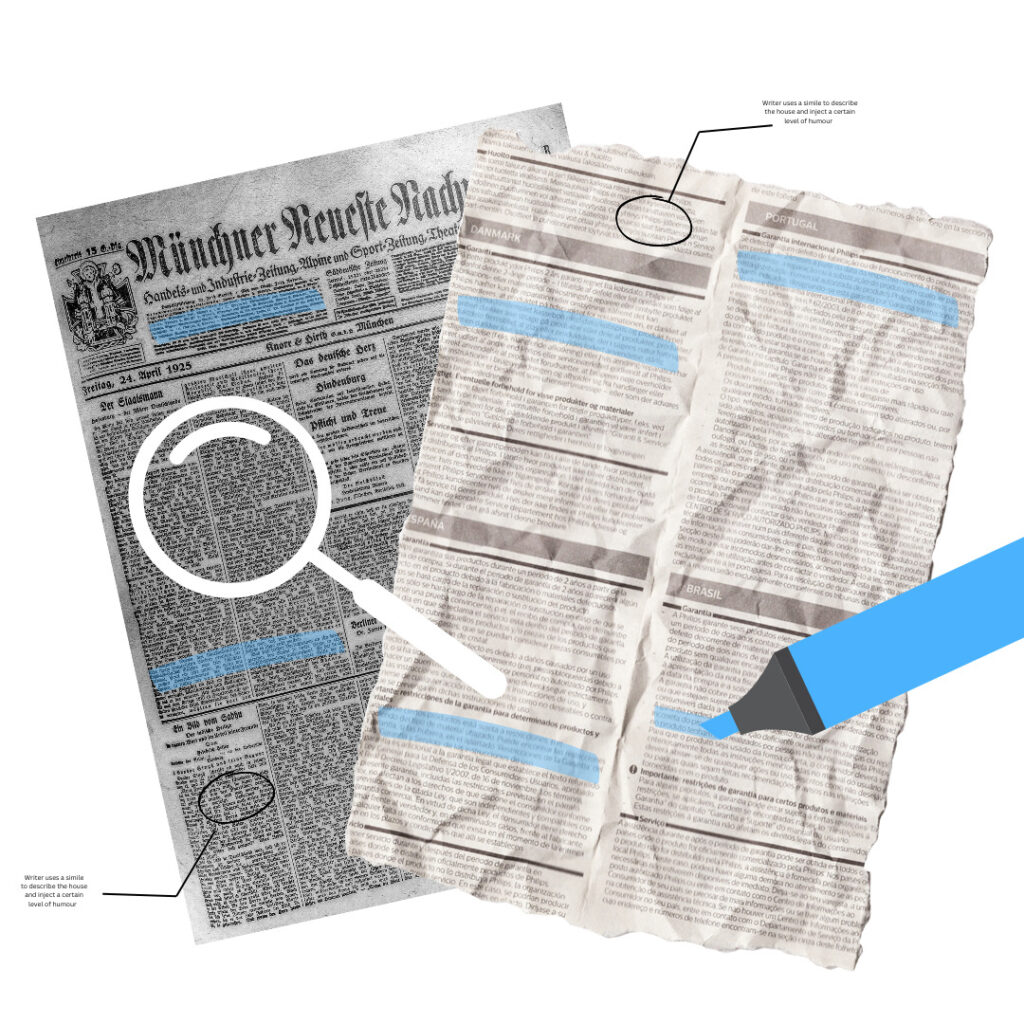AQA: What's in Paper 2?
AQA: What's in Paper 2? Revision
AQA: What’s in Paper 2?
This page will aim to provide you with an overview of what you should expect to find in the Paper 2 section of AQA exams.
Paper 2 follows a similar structure to Paper 1, however they test different skills! In the second paper, you will be tested on ‘Writers’ viewpoints and perspectives’.
On this page, there will be information on:
- The skills tested
- The type of source texts you will find in Paper 2
- The overall structure of the paper and timings
Overview
Paper 2 will be split into 2 sections (like Paper 1): Section A and B.
Section A consists of 4 questions that aim to test you on two different texts: Source A and B.
Q1 = 4 marks
Q2 = 8 marks
Q3 = 12 marks
Q4 = 16 marks
Section B consists of 1 question, which is a writing task.
Q5 = 40 marks
Within these 40 marks:
24 marks will be awarded for content and organisation
16 marks will be awarded for technical accuracy.
Make sure you check your answer, as you will be assessed on your SPaG (spelling, punctuation and grammar) skills.
Text Types

The AQA GCSE English Language Papers are designed so that students are assessed on their ability to analyse and review texts from the 19th, 20th and 21st century…
The aim of Section A is to engage students in two different types of text from different time periods.
Reading two texts will give students the opportunity to make insightful inferences, and notice patterns which can be seen in both texts.
Therefore, you have to understand the use of language and structure in each text and explain the overall effect on both the reader, and the text as a whole.
The two texts you will be given are both non-fiction.
This means that they will discuss social or political issues that follow a similar theme.
This could be to do with lifestyle, freedom, arts and more!
The aim of Section B is to inspire students to write a text themselves.
The question will provide a written prompt in the form of a quote that relates to the same theme as Section A. Students must respond to the quote in the correct text type given.
This can be a newspaper article, magazine article or letter for example.
Remember to adjust your formality to suit the type of text, audience, and purpose! You will also get marks for correct formatting, like an address, greeting, and sign-off for a letter.
What you will be marked on: Assessment Objectives
Section A of the paper will test you on 3 Assessment Objectives (AOs):
- AO1 – Identify and interpret explicit and implicit information and ideas and select and synthesise evidence from different texts.
- AO2 – Explain, comment on and analyse how writers use language and structure to achieve effects and influence readers, using relevant subject terminology to support their views.
- AO3 – Compare writers’ ideas and perspectives, as well as how these are conveyed, across two or more texts.
Section B of the paper will test you on 2 Assessment Objectives (AO):
- A05 – Communicate clearly, effectively and imaginatively, selecting and adapting tone, style and register for different forms, purposes and audiences. Organise information and ideas, using structural and grammatical features to support coherence and cohesion of texts.
- AO6 – Candidates must use a range of vocabulary and sentence structures for clarity, purpose and effect, with accurate spelling and punctuation.
The full breakdown of what these AO points mean can be seen on the pages to follow!
Timings
It can be stressful when you’re on a strict time schedule in an exam, so it is important to know how to split your time up effectively.
You will be allowed 1 hour and 45 minutes to complete Paper 2. On the front of the paper, it will advise you on how long you should spend for each section.
As there are 40 marks per section, it is recommended that you leave enough time to complete both equally.
This can include:
- 15 minutes to read through the sources and flick through the questions before you begin
- 5 minutes to plan Question 5 (the writing task)
- Enough time to check your answers for any mistakes (SPaG)



